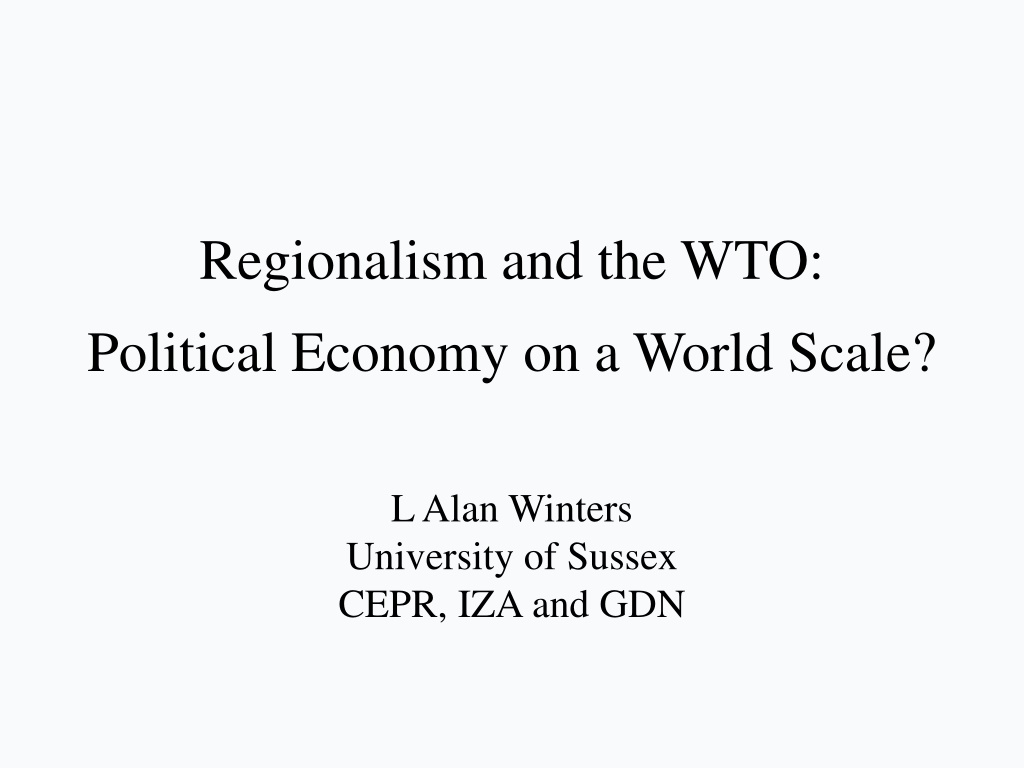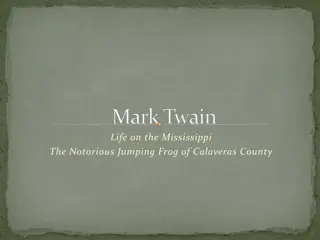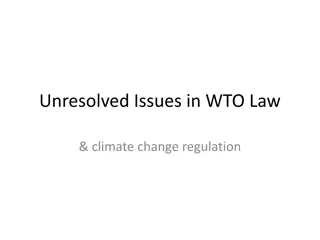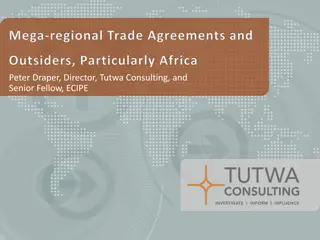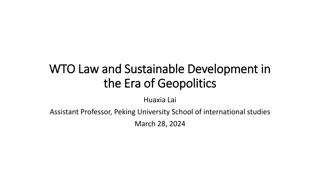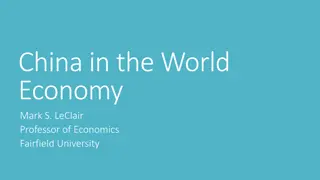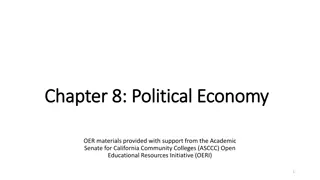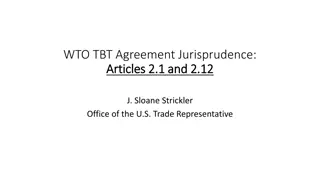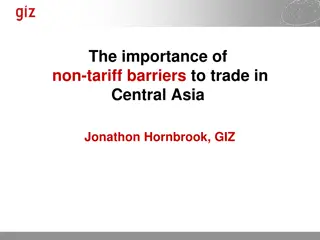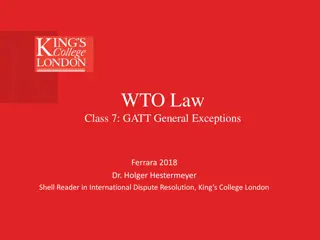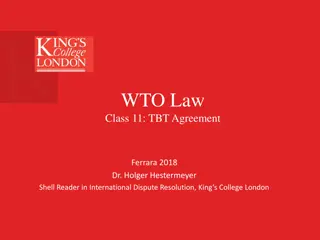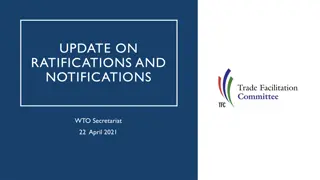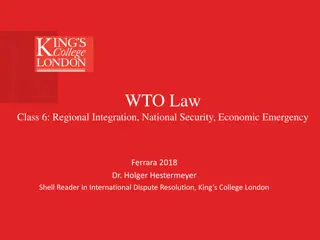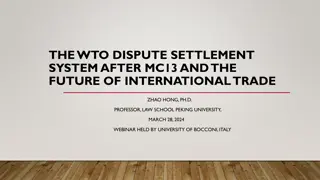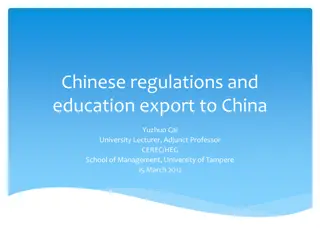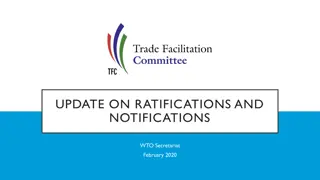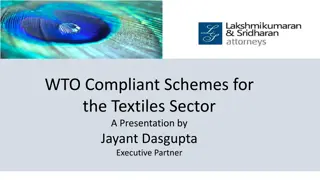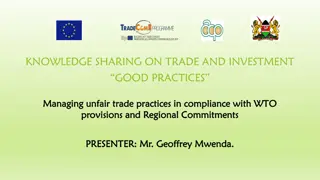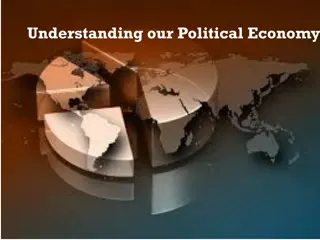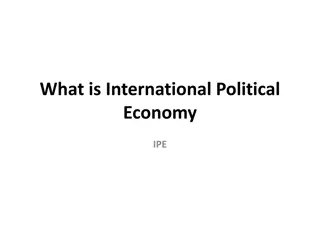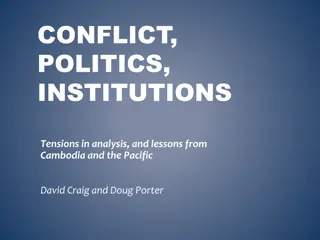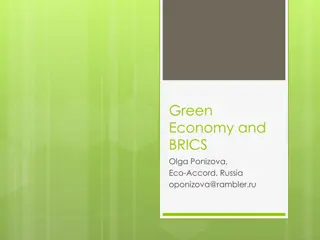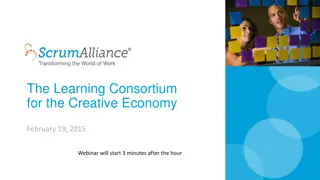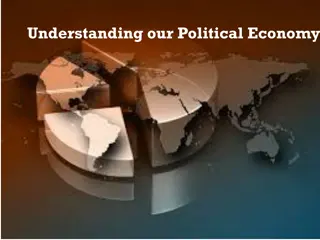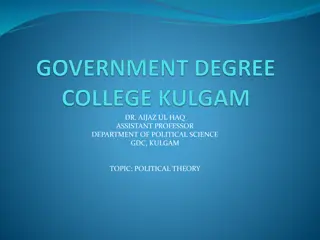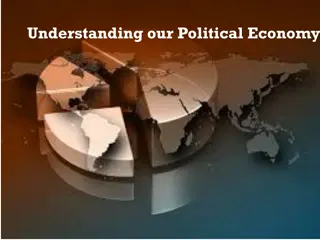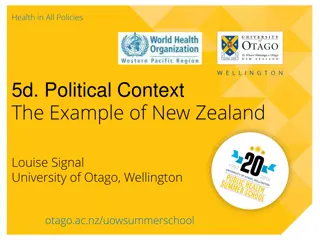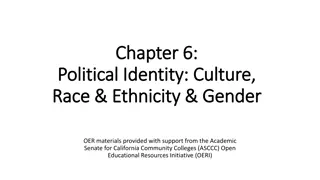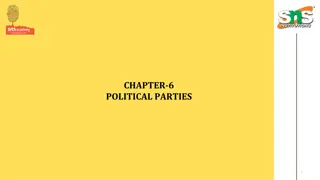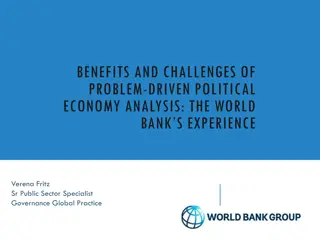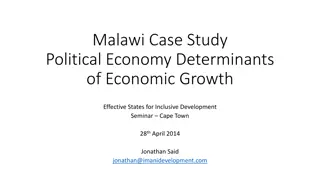Understanding Regionalism and the WTO: Political Economy Dynamics
The text explores the influence of politics on the GATT/WTO and the rise of mega-regionals, highlighting the shift towards regulatory trade policies. It delves into the origins of multilateralism, non-discrimination principles, and challenges in negotiating regional agreements within the GATT framework.
Download Presentation

Please find below an Image/Link to download the presentation.
The content on the website is provided AS IS for your information and personal use only. It may not be sold, licensed, or shared on other websites without obtaining consent from the author. Download presentation by click this link. If you encounter any issues during the download, it is possible that the publisher has removed the file from their server.
E N D
Presentation Transcript
Regionalism and the WTO: Political Economy on a World Scale? L Alan Winters University of Sussex CEPR, IZA and GDN
The Thesis The GATT/WTO is influenced by politics In regionalism, it is dominated by politics It always has been . and it still is The trade policy agenda is now regulatory rather than about tariffs, and WTO can t cope The mega-regionals reflect these two forces So now politics is undermining multilateralism 22nd September 2015 FIW-Workshop 2
Outline Negotiating regionalism in the GATT Discrimination and multilateralism Article XXIV Failing to implement Article XXIV Failing to reform Article XXIV Where did the mega-regionals come from? Why it is all so worrying? 22nd September 2015 FIW-Workshop 3
Non-discrimination Cordell Hull, US Secretary of State 1933-1944 wars were often largely caused by economic rivalry conducted unfairly (1948, p.84) Actually rather a bilateralist Bilateral negotiations extended by MFN (RTAA) Multilateral enforcement proposed 1916, but then dropped Not heavily involved in the negotiation of the ITO or, therefore, the GATT 22nd September 2015 FIW-Workshop 4
Multilateralism Percy Bidwell Multilateral negotiations proposed in 1933 Overcome interests; help others liberalise Multilateral arbitration and oversight (1943, 1944) James Meade International Commercial Union, 1942 Multilateral limits on protection and subsidies International Commerce Commission of a semi- arbitral semi-judicial nature 22nd September 2015 FIW-Workshop 5
Bidwell and Meade on Customs Unions Maximal degrees of preference or maximal durations Restricted to recognised groups or specific circumstances, Multilateral over-sight to represent the interests of non-partners, with, at least implicitly, the right to veto agreements. 22nd September 2015 FIW-Workshop 6
The Havana Charter Initially only CUs, along Bidwell-Meade lines No provision for transition period to CU UK Imperial Preference were grandfathered CUs treated not as an MFN but a technical matter the definition of a customs territory Free Trade Areas added at last moment, and Disciplines weakened (notably RTAs need only cover substantially all trade) 22nd September 2015 FIW-Workshop 7
Why add FTAs? Secret negotiations of a USA-Canada FTA (see Kerry Chase, WTR, 2006) USA induced others to seek the amendments USA foreign policy shifted from military response to Russian threat to economic re-inforcement of allies (to meet internal threat too) CUs were essentially domestic policy but FTAs were part of foreign policy Politics! 22nd September 2015 FIW-Workshop 8
Article XXIV: CUs and FTAs Cover substantially all trade Abolish duties and other regulations on internal trade between members Not raise average levels of protection against third countries Agreements to be reviewed for consistency with the GATT implicitly scope to reject Too vague to enforce? 22nd September 2015 FIW-Workshop 9
Article XXIV - put to the test First cases - procrastination South Africa-Rhodesia Customs Union, 1949 Nicaragua-El Salvador FTA, 1951 First big cases flunked European Economic Community (EEC), 1957 EEC s treaties with overseas territories, 1958 Strong EEC pressure, backed by USA Politics again 22nd September 2015 FIW-Workshop 10
Failure to enforce, 1957-1994 No agreement accepted or criticised No dispute cases The Uruguay Round Negotiations Understanding on ..XXIV Some definitions and clarifications No big issues couldn t agree USA: NAFTA; EU: Europe Agreements More politics 22nd September 2015 FIW-Workshop 11
Failure to Reform - the WTO Committee on RTAs (CRTA) Expertise and higher standing One RTA approved, none criticised Two disputes (India-Turkey, EU-Argentina) Prohibition of unilateral preferences EPAs 2006 Transparency Mechanism More information De facto no attempt to judge at all 22nd September 2015 FIW-Workshop 12
Meanwhile Tariffs declining, NTMs become relatively more important In fact, NTMs becoming more demanding Business pressing for solutions Developing countries suspicious of regulatory agenda in WTO Mega-Regional solutions look easier. 22nd September 2015 FIW-Workshop 13
Mega-Regionals The Trans-Pacific Partnership (TPP) GDP 37% of global total; trade 26% population 11% The Trans-Atlantic Trade and Investment Partnership (TTIP) GDP 46%, trade 44%, population 12% The Regional Comprehensive Economic Partnership (RCEP) GDP 31%, trade 27% population 48% 22nd September 2015 FIW-Workshop 14
The Trans-Pacific Partnership (TPP) P4 in 2006; USA seeks entry 2008 participate in the regional trade architecture Asia-Pacific countries pursuing preferential trade agreements, important commercial and strategic implications for the US (USTR, 2008). Also: energise DDA, the pivot , bind Asians to USA, please business, wrong-foot the Democrats Others rush to join the Juggernaut 22nd September 2015 FIW-Workshop 15
TPP aims to lead on standards high standards enter the bloodstream of the global system and improve the rules and norms. New issues are model for future negotiations eclipse FTAs offered by China EU and Japan that could be seen as disadvantageous to U.S. businesses and workers Vice President Joseph Biden 22nd September 2015 FIW-Workshop 16
But TPP is designed to exclude China ! China may have applied (before window closed) Disingenuous given China s policies No waivers or flexibility, such as Vietnam will require, because of China s asymmetric gains from WTO accession size and competitiveness Exclusion is only partly commercially inspired Politics again 22nd September 2015 FIW-Workshop 17
The Trans-Atlantic Trade and Investment Partnership (TTIP) Europe proposed, desperate to rekindle growth, reclaim leadership in trade/standards USA agreed it bolsters exclusion of China contribute to the development of global rules that can strengthen the multilateral trading system , President Obama to enshrine Europe and America's role as the world's standard-setters , van Rompouy 22nd September 2015 FIW-Workshop 18
The Regional Comprehensive Economic Partnership (RCEP): ASEAN + 6 Originates from ASEAN Japan seeks to avoid ASEAN +3 counter China China wants anything excluding the USA Greater gains from shallow integration but unlikely to achieve much on deep integration May foster combination with TPP? More likely generate fractures in WTS China s One Road One Belt plan is deeper ? 22nd September 2015 FIW-Workshop 19
Why it matters Trade policy is not a technical or commercial issue, but in this case, one of high politics It is a pawn in a bigger game Encirclement and exclusion are risky, and probably misguided, policies Selecting global standards in the absence of the second largest economy in the world seems highly divisive 22nd September 2015 FIW-Workshop 20
And it threatens multilateralism China s exclusion erodes multilateralism Any attempt by a major bloc to impose global standards is either Accepted, non-discriminatory, but not multilateral procedurally, or Rejected, discriminatory And all because of politics 22nd September 2015 FIW-Workshop 21
Where is the WTO when you need it? The WTO is still useful, e.g. Dispute Settlement Trade facilitation Day-to-day standards processes But with RTAs it is just out-gunned and always has been 22nd September 2015 FIW-Workshop 22
The Tragedy Two forces have come together over 50 years: Tariff reductions have raised the profile of NTMs The GATT/WTO cannot resist RTAs RTAs are the perfect instrument of exclusion But its collateral damage will be multilateralism Cordell Hull was right! Discrimination is corrosive We need to call a halt soon 22nd September 2015 FIW-Workshop 23
Thank you 22nd September 2015 FIW-Workshop 24
